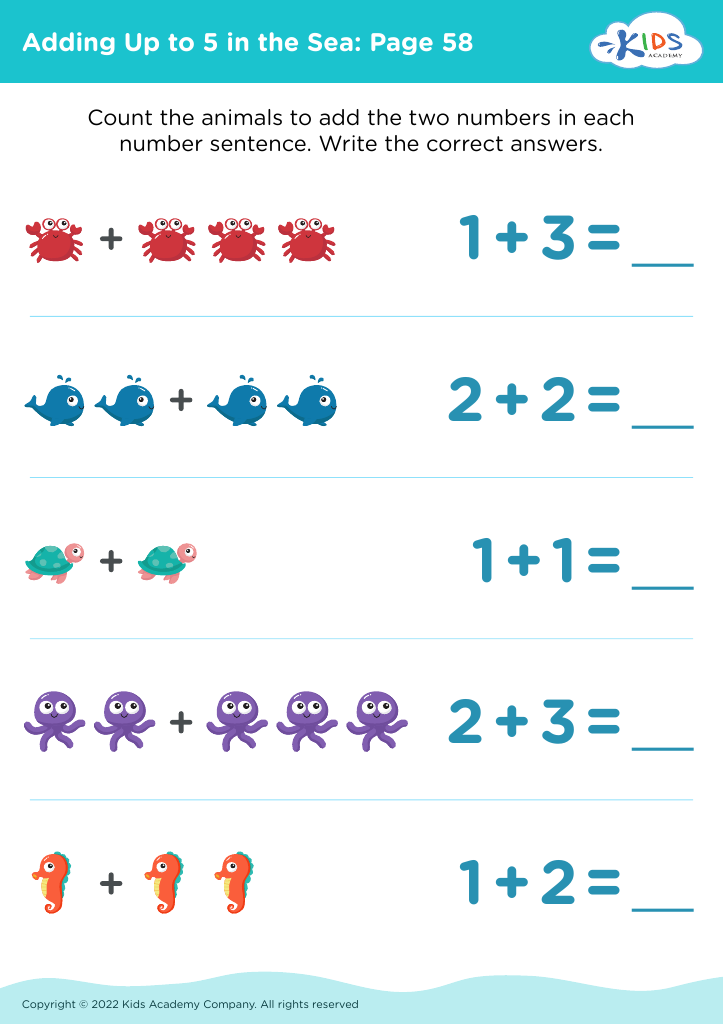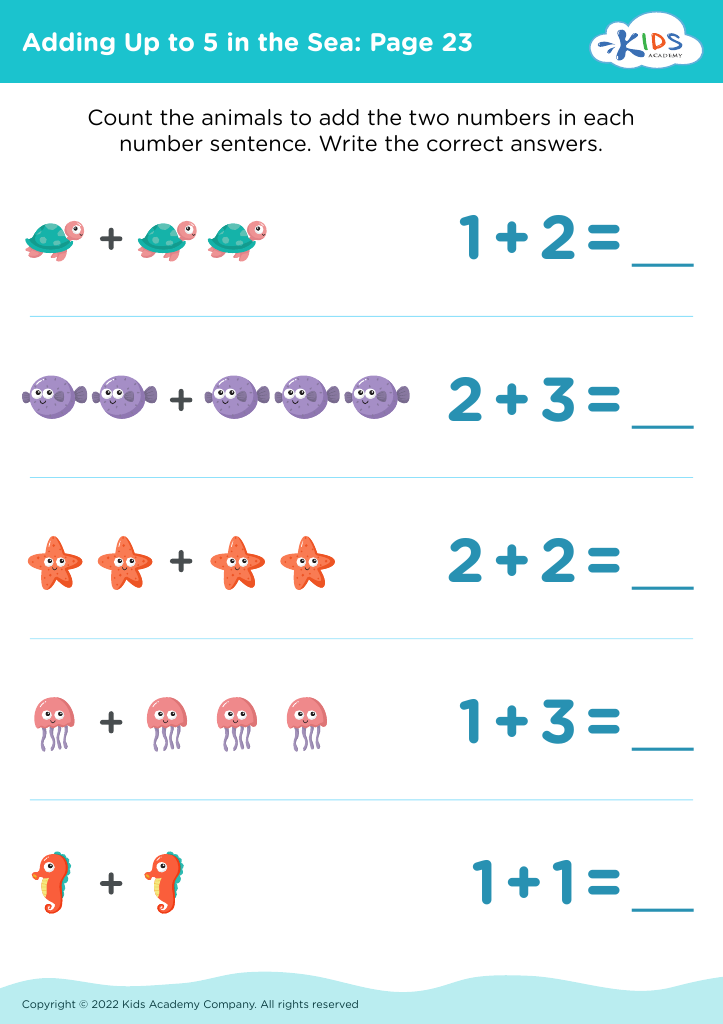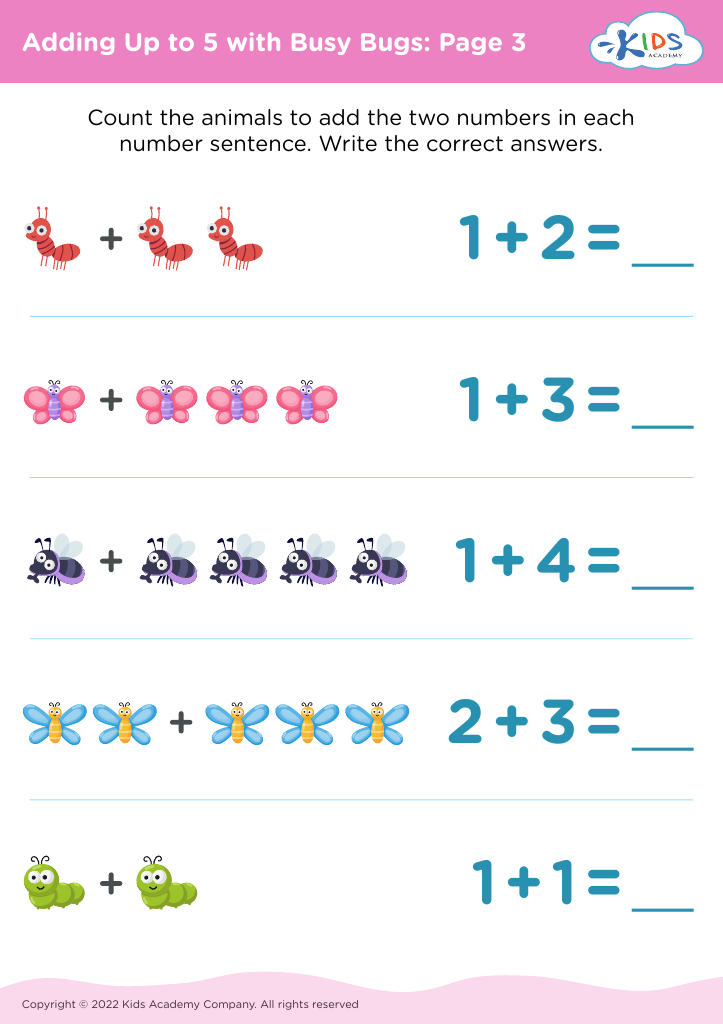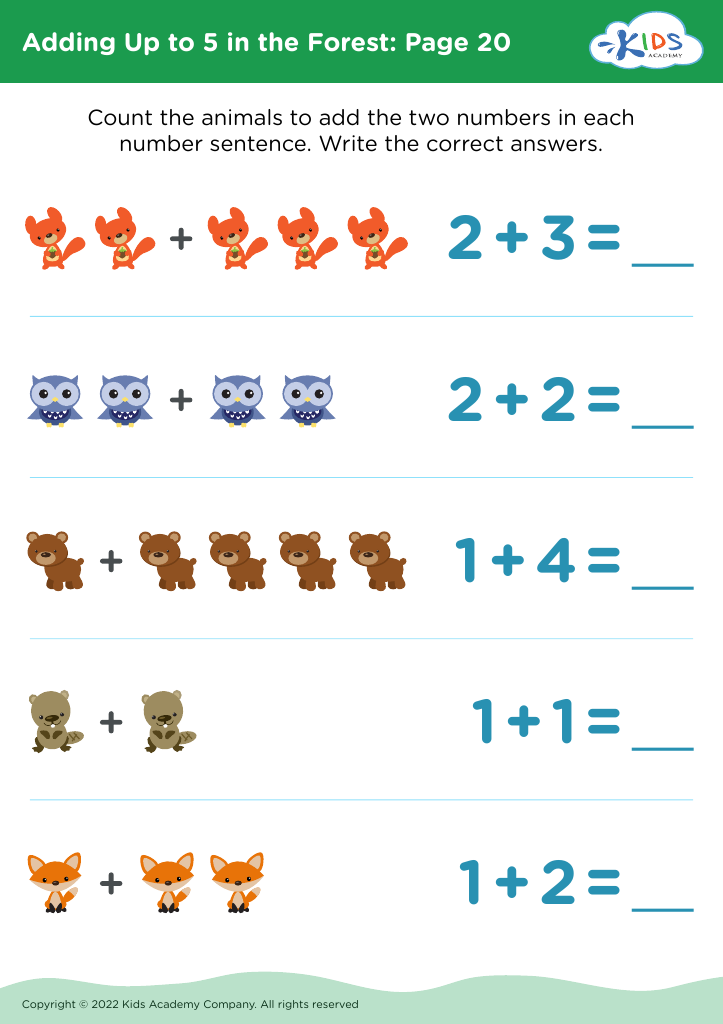Understanding numerical values Addition Worksheets for 4-Year-Olds
4 filtered results
-
From - To
Welcome to our Understanding Numerical Values Addition Worksheets designed specifically for 4-year-olds! These engaging worksheets aim to build a strong foundation in basic math skills through fun and interactive activities. Children will explore numerical values and learn to recognize numbers, enhancing their understanding of addition in a playful way. Each worksheet incorporates colorful visuals and relatable situations, making math concepts accessible and enjoyable for young learners. Perfect for parents and educators seeking to reinforce early mathematical skills, these worksheets will foster confidence and enthusiasm for numbers. Start your child's mathematical journey today with our easy-to-use, printable resources!
Understanding numerical values and basic addition is crucial for 4-year-olds as it forms the foundation of their mathematical skills. At this age, children's cognitive abilities are rapidly developing, and engaging them in activities that promote numerical understanding lays the groundwork for future learning.
Parents and teachers should care because children who grasp basic math concepts early on are more likely to succeed in later academic pursuits. Understanding numerical values helps children recognize patterns, make predictions, and solve problems—all skills that are essential not just in mathematics but across all subjects.
Moreover, early exposure to addition through playful activities, such as counting toys or sharing snacks, fosters a positive attitude toward math. This playful approach ensures that children view learning as fun rather than a chore, building their confidence and curiosity.
Additionally, integrating math concepts into daily life encourages critical thinking and enhances language skills, as children learn to communicate their ideas effectively. By supporting 4-year-olds in understanding numerical values and addition, parents and teachers play a vital role in fostering a love for learning and setting them up for academic success in the future.

























